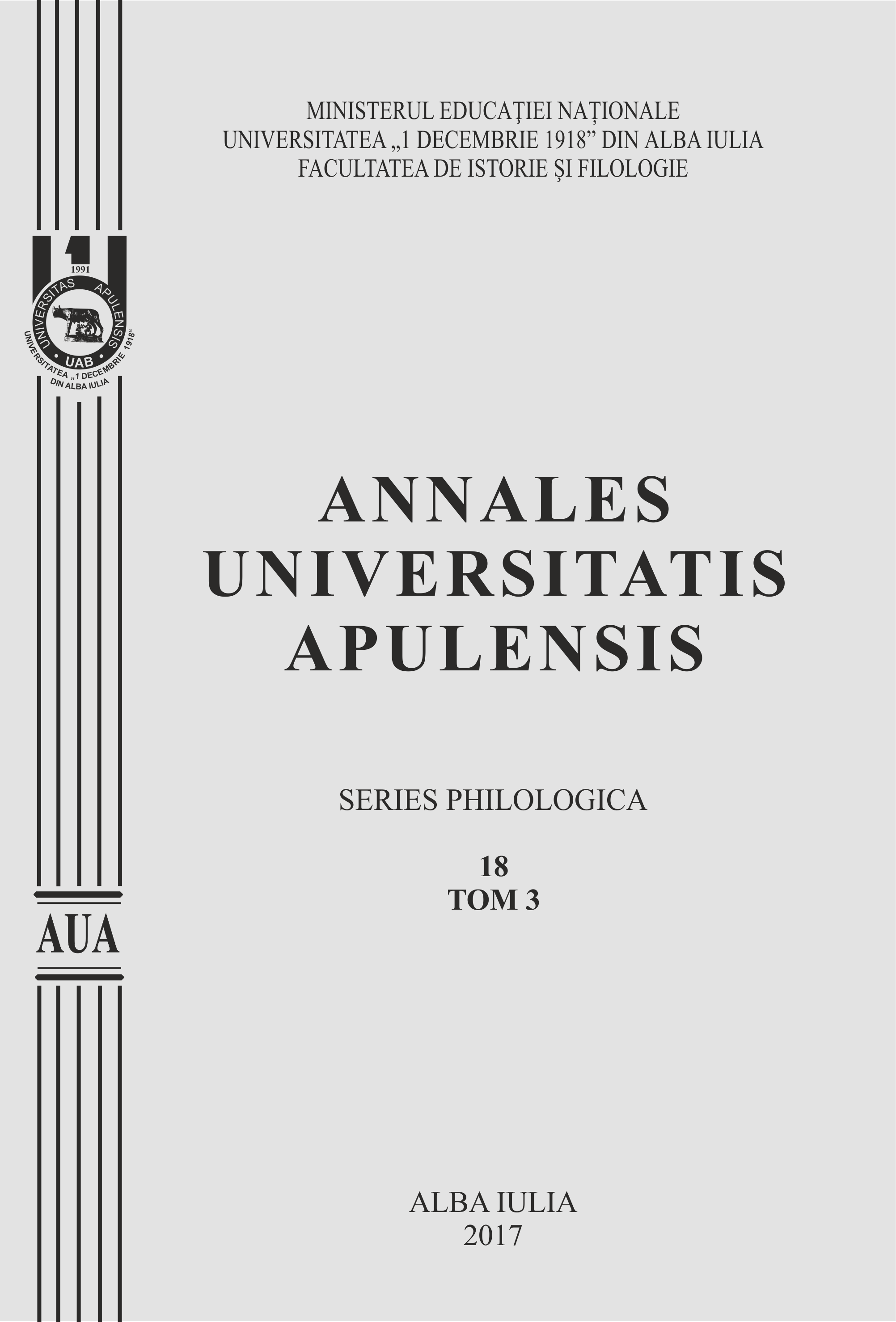PRIVIRE ASUPRA TRADUCĂTORILOR ROMÂNI DE LIMBĂ FRANCEZĂ DIN ȚARA ROMÂNEASCĂ ŞI MOLDOVA ÎN SECOLELE AL XVIII-LEA-AL XIX-LEA
A SURVEY OF THE ROMANIAN TRANSLATORS OF FRENCH LANGUAGE FROM WALLACHIA AND MOLDAVIA IN THE 18TH AND 19TH CENTURIES
Author(s): Raluca-Corina BaciuSubject(s): Language and Literature Studies
Published by: Universitatea »1 Decembrie 1918« Alba Iulia
Keywords: translation; influence; mentality; translator; modernization
Summary/Abstract: In the present article we are proposing an overview of the intellectuals involved in translating the major works from the French literature for the Romanian readers, during a decisive period for the modernization of the Romanian culture. Our analysis will be focused on the biographical and sociological approaches, considering that even concise information on the lives and activities of these people will help us better understand who they were and why they wrote a remarkable page in the history of the Romanian translations. First, we ought to mention the particular nature of the ties between Romania and France. If up to the 18th century, the contacts between the Romanians and the French were considered sporadic and quite lacking intensity, along with the rising to power in Wallachia and Moldavia of the Phanariot families, we observe the outstanding penetration of the French literature, either as original works, or as translations. The French influence continues to grow wider in the following century, France playing a major part in all the main events in the history of the principalities and the making of the modern Romanian state. Even since the second half of the 18th century, Wallachia and Moldavia began to re-open to the West, wherefrom Enlightenment ideas radiated towards all corners of Europe. A smaller number of religious and secular personalities were involved in Wallachia and Moldavia in making translations from the French literature. Romanian translators of the 19th century continued the efforts of the pioneers from the previous century and had a great contribution to align the two principalities along with the other cultures on the European continent. The importance of translation in the 19th century can be proven by the considerable number of writers and poets who took part in this complex process. The emergence of the Romanian female translators was a fundamental change during the 19th century that substantially increased the number of the intellectuals involved herein. Although significantly lower than the number of the male translators, this novelty reflects the ongoing mentality changes in the Romanian society.In these circumstances, the translations are perceived as strong points of support in the evolution towards the originality of Romanian culture and as effective tools of educating the people. Restricted by the authorities' constraints, influenced by the public's preferences and, equally important, by their own possibilities, the Romanian translators from the 18th-19th centuries left us a rich and precious heritage reflecting the characteristics of the tumultuous historical context that led to its creation.
Journal: Annales Universitatis Apulensis. Series Philologica
- Issue Year: 18/2017
- Issue No: 3
- Page Range: 21-36
- Page Count: 16
- Language: Romanian

